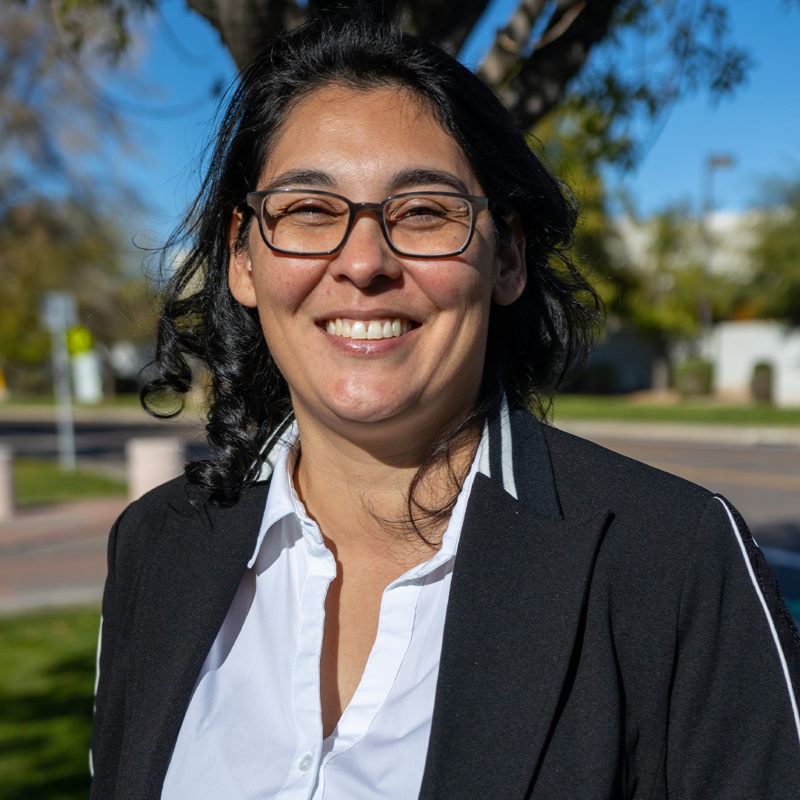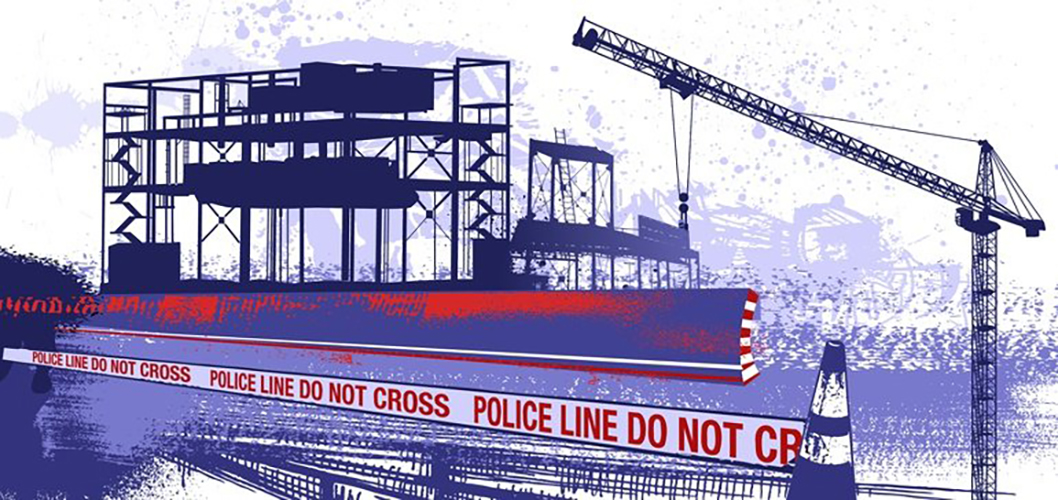As 2020 enters its final months, the construction industry is grappling with how to deal with overtly racist acts in its midst, even as George Floyd’s and Breonna Taylor’s deaths at the hands of police have spurred a broader reckoning with racism in the United States and around the world.
From nooses hung on display in work areas to verbal harassment to racist graffiti in port-a-potties, there have been nearly 20 reported incidents of hate and discrimination on North American jobsites this year. (For a recap of some of the most recent jobsite episodes, see Construction Dive’s Racist Incidents Timeline).
But racist attitudes and actions are nothing new in the construction industry. Stephanie Roldan, who is Mexican-American, recalls the overt discrimination she dealt with early in her career. Roldan, who works as corporate lean manager for San Jose, California-based Rosendin Electric, said that in her first job with a different employer she and a Black worker were tasked with an assignment in a first-floor mechanical room, while White workers were directed to go to the basement.
“Someone asked one of my friends why the wetback and the N-word were doing the cleanroom work, when the White guys were doing the dirty basement job,” Roldan said. “Unfortunately, I think racism has always been under the surface.”
“An engaged business is a more profitable business,” said Drew Aversa, a San Francisco Bay Area-based business consultant who previously served as director of business development at the San Ramon, California-based United Contractors trade association. “If you feel like an outsider, how will you ever want to feel engaged in the work that you’re doing?”
Contractor and developer Lendlease Americas has initiatives like “Listening and Learning Sessions,” open to employees who want to engage in discussions around racial equity and justice. The company also hosts an internal website that offers employees resources and tools about diversity and inclusion.
“A diverse and inclusive workplace not only means people feel valued, it helps build a better, stronger and more innovative Lendlease where everyone feels welcomed, valued and respected,” said Carol Guerrero, head of diversity and inclusion for Lendlease Americas.
2. Racism makes a jobsite more dangerous than it needs to be
Disengaged employees on construction sites pose another risk to profits in terms of safety, experts say.
“Safety and trust are deeply connected in construction,” said Allison Glussi, director of human resources at New York-based Bright Power, a provider of energy and water management systems for building owners. “You need to know that where safety is concerned, your co-worker is going to do their job. But if people are expressing hate on the jobsite, how can you feel confident and trust that they will keep you safe?”
Mike Meagher, president of Chicago-based James McHugh Construction Co., said racism and safety can’t coexist.
“On construction sites there is no room for error – safety is always paramount,” said Meagher. “If you’re hundreds of feet up in the air, or using heavy equipment, the last thing you need is doubt creeping up in your mind about whether your fellow workers have your back.”
Aversa said company leaders can do a quick audit of how engaged employees are, and how much they work together for safety, simply by observing who eats lunch together.
“If one racial group is eating by themselves, and not included in the other, that should be a big red flag,” Aversa said. “If your employees segregate by default because they don’t feel there’s an inclusive culture, your communication chain becomes segregated too. Your increase of potential risk and injuries will go up.”
3. Racism increases deadly accidents among some people of color
There is evidence that segregation among construction workers leads to the most consequential of all safety outcomes: fatalities.
While the numbers have gotten better over time as construction’s overall safety outcomes have improved, Hispanic/Latinx workers are more likely to die on the jobsite than White, non-Hispanic workers. Even though Hispanic workers account for just 30% of construction workers, the annual death rate for them was about 9% higher, on average, than for White, non-Hispanic workers between 2012 and 2015, according to CPWR – The Center for Construction Research and Training. This is down from recent years when the number was up to a 48% higher death rate for Hispanics.
Why rooting out racism matters
Whether overt or subtle, acts of hatred like these are hurtful to their intended targets. But executives, legal experts, consultants and some of construction’s biggest customers say the financial impacts of racism, and its negative drag on a company’s bottom line, are also very real. 
“Beyond the obvious answer that it is the right thing to do, construction executives should be concerned about rooting out racism because it impacts their business,” said Roldan. “Construction is suffering from a skilled-labor workforce shortage. People will not be attracted to working in a career that subjects them to this behavior.”
Maura Kelly, an associate professor in sociology at Portland State University in Oregon, who has studied apprenticeship outcomes by race and sex, said the spectre of racism is eroding construction’s image as a viable career choice.
“You hear so many of these stories about, ‘I wake up every day just dreading going to work.’ That is not sustainable over the long term,” Kelly said. “It’s hard for people who advocate going into the trades to say ‘This is a great career,’ knowing so many people are having these challenges.”
Some companies, such as Turner Construction, have responded aggressively, immediately shutting down jobsites for inclusivity training while explicitly and publicly condemning hate. Other firms have launched inclusion programs and issued statements condemning racism on jobsites.
More than 380 firms have signed the Associated General Contractors of America’s Culture of CARE inclusivity pledge, through which companies such as Hensel Phelps, PCL and Granite Construction have committed to providing a workplace that’s free from harassment, hazing and bullying. The number of participating companies has more than tripled since June, according to the AGC.
Deryl McKissack, CEO of Washington, D.C.-based ENR Top 50 construction management for-fee firm McKissack & McKissack, said this year has been like no other during her nearly 40-year construction career.

Business development manager Jolsna Thomas speaks at a Rosendin Electric Culture of CARE event in Texas.
“I call it 20/20 vision,” said McKissack, who is Black. “That’s what everybody is getting in 2020. With everything that’s going on, people are having to come out and show where they stand.”
There are countless ways racism hurts a construction firm’s bottom line. Here are five of the most critical:
1. Racism keeps workers away
Employees of color interviewed by Construction Dive said racial harassment at work produces a constant internal struggle to not quit their jobs so they can continue to support their families. But beyond discouraging current workers, it also dissuades potential employees from joining an industry that desperately needs them.
A full 80% of construction firms report difficulty filling hourly craft worker positions, while 56% have trouble hiring for salaried positions, according to a 2018 AGC report.
In addition to preventing critical talent from joining the industry, a racist environment on the jobsite also leads to less engaged employees, which impacts both safety and productivity.
Take the case of a Black master plumber in Cincinnati, who said he purposefully doesn’t interact with other workers because of past experiences with racism.
“I don’t talk to anybody unless they work for my company,” said the plumber, who requested anonymity for this series out of fear of retaliation by his employer if he were named. “I’m just there to work.”
But studies show that type of attitude costs companies real dollars. For example, according to the same AGC report, employees who feel excluded, or disengaged, cost a 100-person firm $137,660 annually in lost productivity. On the flip side, according to Gallup, companies with high employee engagement are 22% more profitable and have 21% higher productivity than firms where employee engagement is low.
https://www.constructiondive.com/news/racism-on-the-jobsite-how-hate-erodes-constructions-bottom-line/587207/


